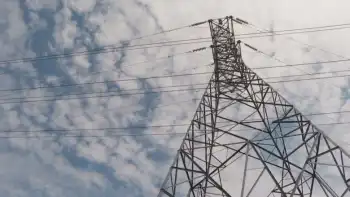Illegal hydro hook-up reveals grow-up house
By Toronto Star
High Voltage Maintenance Training Online
Our customized live online or in‑person group training can be delivered to your staff at your location.

- Live Online
- 12 hours Instructor-led
- Group Training Available
The plan, announced in front of the house by Attorney General Michael Bryant, is a first for Ontario. It's made possible by a powerful legal weapon called the Civil Remedies Act, which allows the attorney general to have civil courts freeze, seize and forfeit the proceeds and instruments of unlawful activity to the Crown.
"This marijuana grow-op is now permanently out of business and up in smoke," Bryant said at 208 Severn St. "A for sale sign is already on the lawn."
Durham Region police raided the house in June 2005 after suspicions were raised that electricity was being stolen with a homemade hydro bypass. They found grow operation equipment and more than 500 plants, as well as dried marijuana with a street value of about $540,000. The property was seized by the province a year later, and last week civil court ordered it forfeited to the Crown.
"This is the first time in Durham Region a residential property used as a grow operation has been forfeited under the Civil Remedies Act," Police Chief Vern White said.
The clean, compact house bore few signs of a grow-op as Bryant and police officers took reporters on a tour. Only traces of mould remained in the basement, where the plants had been growing.
But a video taken by police after the raid showed roomfuls of healthy plants lit by high-intensity lamps fed by a tangle of wires.
"A single drop of water on one of those bulbs could cause it to explode," said Det. Cindi Bradley, pointing out the dangerous electrical system.
She said the homeowner had cleaned and fixed up the house after the raid, with the idea of selling it. "You really have no idea now what was going on down here."
Neighbours said that while the owner diligently cut the grass and cleared the snow, he rarely stayed overnight. They suspected something was going on because he didn't behave like other residents of the close-knit neighbourhood.
"You see him at strange hours; he'd stay two or three hours and cut the grass, then he'd leave," said Harry Kirkwood, who lives across the street. "Everyone else has a pattern; at this house, there was no pattern."
Another resident who said she didn't want to give her name because she's a "nosy neighbour" said she never saw anyone at the house.
"I said to myself, `That's a grow-op, all right.' But I never told anyone because I didn't have any proof."
Real estate agent Rosemary Brown, who now has the task of selling the house, figures it would be worth $250,000 to $280,000, but its history will bring the price down significantly.
"There's a real stigma attached to it," she said, adding that prospective buyers must be told what it was used for.
The seizure and sale of the house is touted as a deterrent to others, according to Greg Crone, a spokesperson with the attorney general's office.
"The government wants to get the message out that if you engage in this kind of activity... we'll take your property."
Once the house is sold, the proceeds will be added to a special fund used to compensate victims of crime and to pay for crime prevention programs.
The story of 208 Severn St. could have had a different ending if it not for the eagle eyes of Durham Det. Const. Robert Hawkes, who got involved in the case after the operation was busted.
Knowing the grow operator had pleaded guilty, and suspecting the man would try to sell the house, Hawkes drove by every week for two months.
One day, a for sale sign popped up. The process required to freeze the property was already underway, but Hawkes had the attorney general's office speed things up to prevent the sale.
"It's a positive outcome," he said modestly. "Everyone benefits except the criminal. We're taking something away from him and protecting someone who might have purchased the house.
"And it's good for the neighbourhood."











